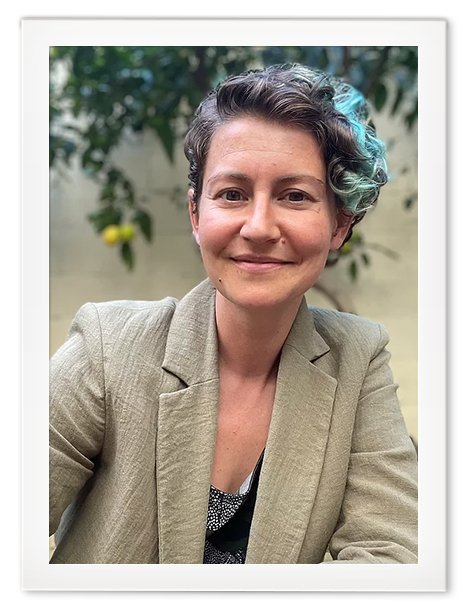Corrie Bennett Varga
Corrie Bennett Varga
Occupation: Lead Mental Health Clinician at St. James Infirmary
Location: San Francisco, California, United States
The Sex in My Business: St. James Infirmary is a peer-based free public health clinic in San Francisco’s Tenderloin neighborhood. We serve full-service sex workers from all over the Bay Area, so as Lead Mental Health Clinician, discussions surrounding sex are often a central focus in my work. Even when not working with full-service sex workers, the topic still comes up a lot in therapy. Sexuality has been so repressed in our culture that it is no surprise people struggle with difficult emotions around the topic. As a therapist who is comfortable talking about sex, I see lots of folks who want help processing sexual trauma, libido, and gender or sexual identity issues. I find it enlivening to work in a field that engages these issues related to sex — but then again, I am drawn to talk about pretty much anything that is not your typical dinner-table conversation with grandma!
A Typical Day: I do my best work during the day when I give myself plenty of downtime to recuperate. I meditate first thing in the morning and call a friend while I walk my pit bull, Georgia. Once I am in the office (around 10:00 a.m.) my attention is usually torn in many directions because, in addition to providing direct services, I actually lead the mental health program. I see between eight and ten participants a week for therapy. I also do a lot of writing, supervise my team, and play catch-up on all the administrative pieces that it takes to keep the program running and funded. I prioritize connecting with the rest of the staff because their passion and energy fuels my own, and I always try to focus my energy on plotting how I can grow this program and give more sex workers access to free mental health care. After I leave St. James in the afternoon, I head to my private practice, where I work with queer people, trans people, and sex workers who can afford private-pay therapy. It helps with burnout to split my work week between the two roles.
The Best Part: I get to offer mental healthcare for free because all of our services at St. James are free! It never ceases to inspire me. Besides that, I also thrive as a leader, and I enjoy training new therapists in the field, providing mentorship, and developing our mental health program so it can be replicated by other organizations that work with sex workers.
The Worst Part: The documentation. Our mental health program is government-funded — which is incredible because without that support we wouldn’t exist — but it requires an extensive amount of paperwork to prove that we are doing the work they are funding us for. I recognize the importance of writing progress notes, but in community mental health, it often feels like a burden. Worse than that, it takes my time away from being able to see more clients.
How I Got Here: I was a sex worker in my twenties and early thirties, and it turned out that a lot of that job was about listening to and empathizing with people. It was sex work that first brought me to St. James in 2005 to get medical care because in that job it was too challenging to go to a traditional doctor’s office. Sex work allowed me to make my own schedule while I was struggling with severe and chronic mental health issues, when it would have been challenging to work a more mainstream job. Once I had been through my own mental health recovery, I became passionate about supporting others to do the same. When I went back to grad school to become a therapist, those years of empathic listening practice as a sex worker translated easily into the therapy room. It was always my dream to be able to return to my roots and be of service to my community as a clinician at St. James.
What Society Thinks: I count myself lucky to be supported by my community, family, and partner, both as a former sex worker and as a psychotherapist. Partly, this comes from being queer, living in the Bay Area, and creating a life where I am surrounded by activists and change-makers. St. James has been in service for over twenty years, and we are a beloved fixture in the social services scene of San Francisco. In collaboration with several government officials, we helped achieve the passage of State Bill 233 to increase health and safety protections for sex workers, and we hope to continue working towards full decriminalization in the coming years. However, both therapy and sex work are still highly stigmatized by society. It takes a tremendous amount of courage and commitment for someone to call me and ask for help, and that keeps a lot of people from getting the support they need. This is as true for sex workers as it is for anyone else, but the additional stigma experienced by sex workers negatively affects the lives of many people in the industry.
When I’m Not At Work: I love being outside and with my friends and community. Living in the Bay Area, we are spoiled enough to have the ocean so close — but there’s also Mount Tam to the north with its waterfall hikes, the giant redwoods nearby, and the Sierras just a short trip away for backpacking season. I would hike every day if I could.
For more about Corrie, visit her website.
Published Jan 1, 2020
Updated Aug 23, 2023
SUBSCRIBE TO OUR NEWSLETTER
Published in Issue IV: Activism












